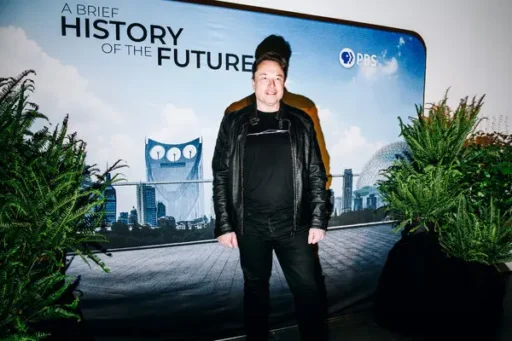
Elon Musk, the billionaire entrepreneur behind Tesla and SpaceX, has officially launched Grok, a conversational chatbot developed by his artificial intelligence company xAI. This move positions Musk directly in competition with industry leaders like OpenAI (creator of ChatGPT), Google (Bard), and Meta (LLaMA).
Grok is designed to be more than just a chatbot. It is being marketed as an AI assistant with a rebellious streak, ready to answer questions with wit, sarcasm, and sometimes controversial opinions. Early users have described it as “ChatGPT with an attitude.”
What is xAI and Why Was It Created?
Founded in July 2023, xAI is Musk’s response to what he calls the “woke bias” of existing AI systems. He believes many current models, including those by OpenAI, are overly censored and lean toward politically correct outputs.
xAI’s stated mission is to “understand the true nature of the universe.” Musk has repeatedly emphasized the need for truthful, uncensored, and open AI models, and Grok is his first product designed to push that vision into the public space.
How is Grok Different from ChatGPT or Bard?
Musk claims Grok is trained to answer spicy questions that other AIs avoid. Built using large-scale language modeling, it has real-time access to information from X (formerly Twitter), offering more up-to-date replies than many rivals who operate on static training data.
According to Musk, Grok will also become a key feature in X Premium+, meaning that paying subscribers to X will have early and possibly exclusive access to it. This integration puts Grok directly into the hands of millions of social media users without needing a separate app or interface.
Key Features of Grok:
-
Live internet integration: Real-time answers by pulling info from X
-
Edgy personality: Designed to give witty or sarcastic replies
-
Embedded in X: Seamless integration for X Premium+ users
-
More lenient moderation: Fewer guardrails on controversial topics
-
Privacy-focused: Less user data collection compared to some rivals
Reception and Controversy
Grok’s arrival has sparked mixed reactions. Tech communities appreciate the transparency and humor of its responses, while critics argue the chatbot could easily spread misinformation if not properly monitored. Experts in AI ethics are concerned about how Grok may handle sensitive topics such as politics, race, and health.
Some users praised Grok for being “refreshingly honest” in answering politically charged questions. Others worry this “honesty” may simply be an amplification of Musk’s personal views wrapped in an AI wrapper.
Competition in the AI Space
Musk co-founded OpenAI in 2015 but left the organization in 2018 due to disagreements over its direction. Since then, OpenAI has gone on to release ChatGPT, which quickly became the most used AI chatbot globally.
By launching Grok, Musk is re-entering the very field he helped shape. But this time, he is playing by his own rules. Meanwhile, Google’s Bard, Meta’s LLaMA, and Anthropic’s Claude all continue to evolve, offering unique takes on conversational AI.
Grok and the Future of AI Conversations
Despite criticisms, Grok’s development signals a new phase in AI: one where tone, personality, and ideology may become as important as accuracy or safety. Users now have more choices, and each model reflects the values and philosophy of its creators.
Musk believes future AI will shape not just how we search or chat online but how we think, debate, and make decisions. With Grok, he’s planting a flag for unfiltered digital conversations.
Final Thoughts
Grok’s release is more than a tech update; it’s a cultural event. Whether it becomes a dominant force or fades as a novelty depends on how well it can balance being edgy yet accurate, funny yet factual, and free yet safe.
As users experiment with Grok, the tech world watches closely. Will this chatbot mark a new chapter in AI development or simply serve as a mirror of Elon Musk’s polarizing influence?
Time will tell.